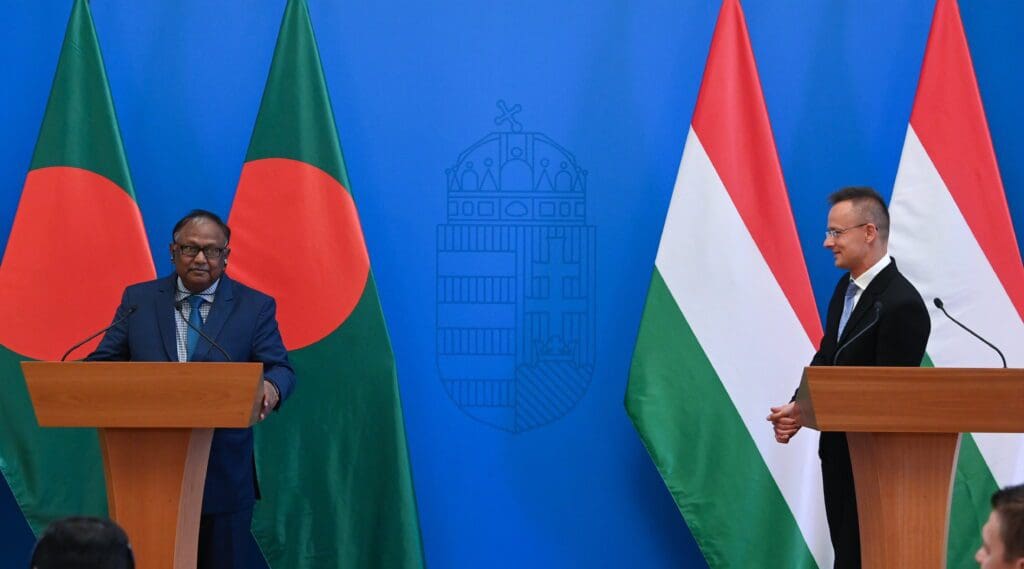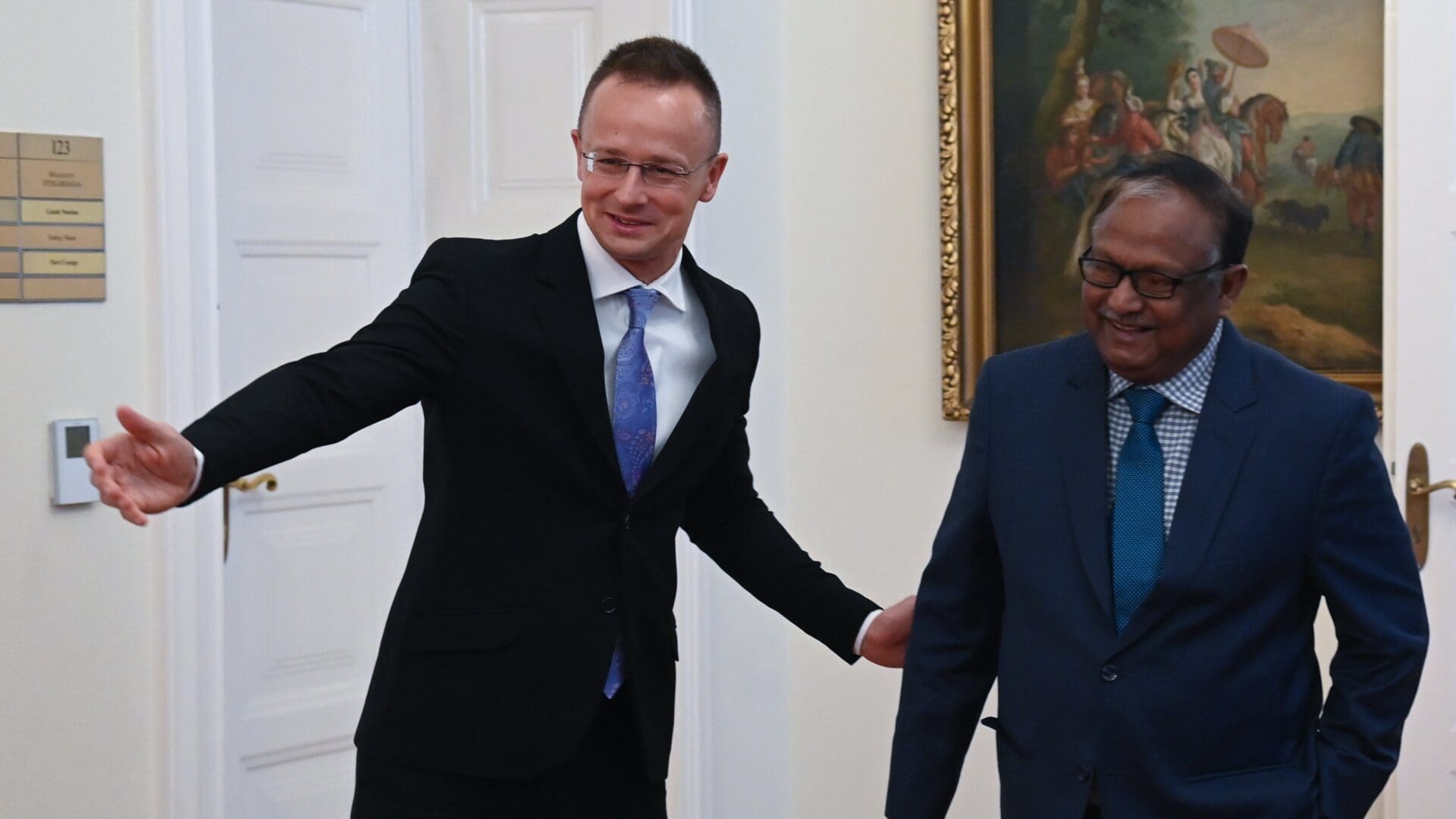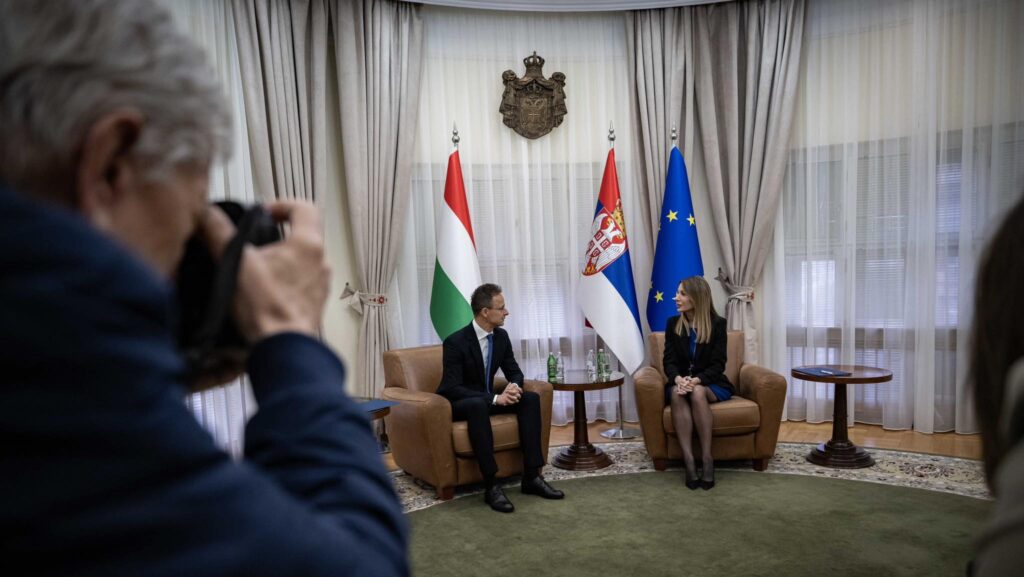The Ukrainian war has caused a triple crisis in the world—an economic, an energy, and a food supply crisis—, and the solution to these difficulties can only be peace, Hungarian Minister of Foreign Affairs and Trade Péter Szijjártó underscored in a joint press conference with Bangladeshi Commerce Minister Tipu Munshi in Budapest on Friday, 5 May. That is why Hungary and Bangladesh belong to the peace-loving global majority, the minister added.
The Hungarian foreign minister stated that although the two countries are geographically far apart, they face the same extremely serious challenges due to the Ukrainian war. ‘The triple crisis, that is, the economic, energy, and food supply crisis, has hit all corners of the world, and Bangladesh also faces serious challenges due to the war and the sanctions imposed in response to it, whether it is about food supply or inflation,’ he said.
He emphasised that these challenges can only be eliminated if peace is established in Ukraine as soon as possible, and for this reason, the two countries belong to the peace-loving global majority. Szijjártó pointed out that the armed conflict has caused an energy crisis in the world, and this means that the countries that can produce the energy they consume to the greatest extent possible may be the most secure. He reminded that the two countries are currently building a nuclear power plant with the same technology and performance in order to become independent of the ‘completely insane’ price increases on the international energy market and thereby strengthen their sovereignty.

He emphasised that nuclear energy is a cheap, clean, and safe way of energy production. Hungary is committed to building a nuclear power plant, and we consider every European attempt to hinder the Paks investment as an attack against the country’s sovereignty, he added. Therefore, the government calls on its ‘European friends’ to refrain from sanctioning the Hungarian nuclear investment. If a proposal is made to sanction the nuclear industry, the Hungarian administration will consider it a proposal against Hungary and veto it, he declared.
The minister urged the European Commission to approve the proposed modifications to the financing and implementation contracts of the Paks 2 project as soon as possible, as they fully comply with community regulations.
The minister noted that in times of crises and threats, predictable and reliable partnerships are becoming increasingly valuable, and this is precisely the characteristic of the relationship between Hungary and Bangladesh.
He announced that bilateral trade reached a record high last year, and the momentum is expected to continue this year. He stated that this is mainly due to the increasing demand for Hungarian pharmaceuticals in Bangladesh, and Bangladeshi textile products are increasingly being imported into Hungary.
The parties finalised the text of an economic cooperation agreement and agreed to conclude a double taxation avoidance agreement to further expand trade. It was also reported at the press conference that the number of Bangladeshi students applying for scholarships in Hungary has reached a peak, with 1,643 applicants registered this year, 140 of whom will be able to study at Hungarian higher education institutions.








